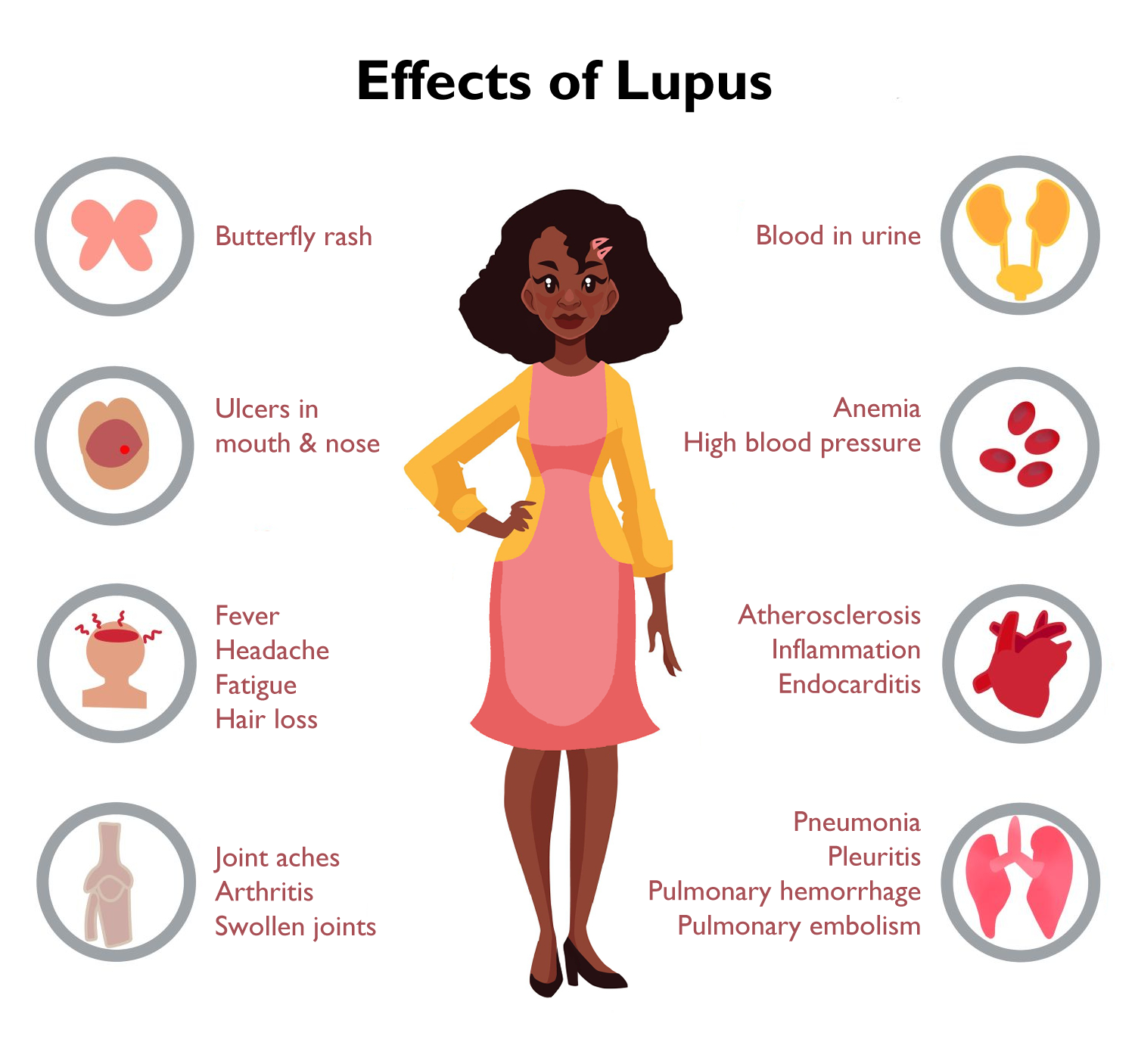Lupus is a chronic multisystem inflammatory autoimmune disease. It has an estimated prevalence of 73 cases per 100,000 in the United States.1 Women, especially those of African American or other ethnic minority descents, are more likely to be affected. The pathogenesis of the disease is not fully understood but is thought to be multifactorial and associated with numerous genetic polymorphisms, hormonal factors, immunologic dysregulation, and environmental forces.2,3 The widespread tissue damage characteristic of lupus is mediated by immune complexes, autoantibodies, and inflammatory factors, all of which contribute to the systemic manifestations of the disease.3,4 The clinical presentation of lupus is heterogenous with varied features and severity. Common features upon initial presentation include constitutional symptoms (such as fever, fatigue, and weight loss), non-erosive arthritis and symmetrical arthralgias, and mucocutaneous manifestations (such as a malar rash and oral ulcers).4,5 Clinical manifestations may extend to cardiovascular, renal, neurologic, gastrointestinal, pulmonary, hematological, and ophthalmologic involvement, with lupus nephritis being the most commonly involved major organ system condition and a significant source of morbidity and mortality.4-6 Patients with lupus can present with several autoantibodies in their bloodwork, including antinuclear antibody (ANA) and anti-double-stranded deoxyribonucleic acid (anti-dsDNA). Other laboratory abnormalities include low complement levels and elevated markers of inflammation, such as erythrocyte sedimentation rate (ESR) and C-reactive protein (CRP).7,8
References
- Izmirly PM, Parton H, Wang L, et al. Prevalence of systemic lupus erythematosus in the United States: estimates from a meta-analysis of the Centers for Disease Control and Prevention National Lupus Registries. Arthritis Rheumatol. 2021;73(6):991-996. doi:10.1002/art.41632
- Rullo OJ, Tsao BP. Recent insights into the genetic basis of systemic lupus erythematosus. Ann Rheum Dis. 2013;72 Suppl 2(0 2):ii56-ii61. doi:10.1136/annrheumdis-2012-202351
- Tsokos GC. Systemic lupus erythematosus. N Engl J Med. 2011;365(22):2110-2121. doi:10.1056/NEJMra1100359
- Kiriakidou M, Ching CL. Systemic Lupus Erythematosus. Ann Intern Med. 2020;172(11):ITC81-ITC96. doi:10.7326/AITC202006020
- Lisnevskaia L, Murphy G, Isenberg D. Systemic lupus erythematosus. Lancet. 2014;384(9957):1878-1888. doi:10.1016/S0140-6736(14)60128-8
- Danila MI, Pons-Estel GJ, Zhang J, Vilá LM, Reveille JD, Alarcón GS. Renal damage is the most important predictor of mortality within the damage index: data from LUMINA LXIV, a multiethnic US cohort. Rheumatology (Oxford). 2009;48(5):542-545. doi:10.1093/rheumatology/kep012
- Liu CC, Kao AH, Manzi S, Ahearn JM. Biomarkers in systemic lupus erythematosus: challenges and prospects for the future. Ther Adv Musculoskelet Dis. 2013;5(4):210-233. doi:10.1177/1759720X13485503
- Aringer M, Costenbader K, Daikh D, et al. 2019 European League Against Rheumatism/American College of Rheumatology classification criteria for systemic lupus erythematosus. Arthritis Rheumatol. 2019;71(9):1400-1412. doi:10.1002/art.40930




